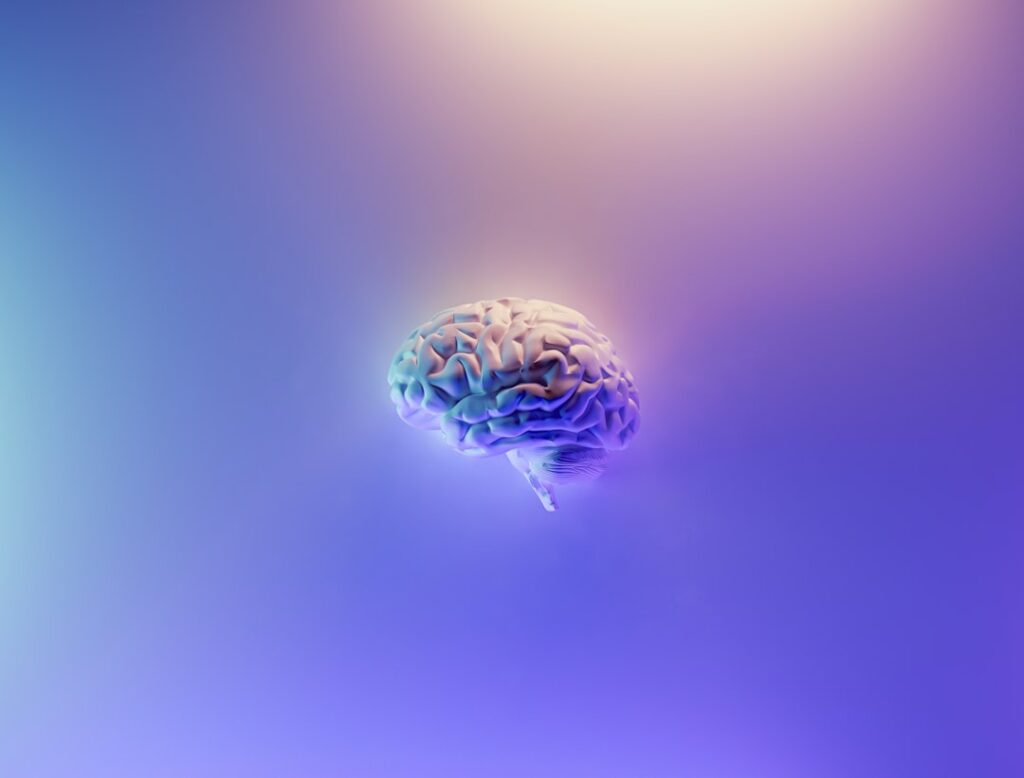Sleep deprivation is a condition characterized by a lack of sufficient sleep, either in duration or quality. It is estimated that around 35% of adults in the United States do not get the recommended seven to nine hours of sleep per night. Sleep is essential for brain functioning as it plays a crucial role in restoring and repairing the brain. Without adequate sleep, the brain cannot function optimally, leading to a wide range of cognitive, emotional, and physical impairments.
Key Takeaways
- Sleep deprivation can have a significant impact on brain functioning.
- Lack of sleep can lead to cognitive impairment, emotional instability, and memory consolidation issues.
- Sleep deprivation can also affect brain plasticity and the reward system.
- There is a connection between sleep deprivation and mental health disorders.
- Strategies for preventing sleep deprivation include establishing a regular sleep schedule and avoiding caffeine and electronics before bedtime.
How Lack of Sleep Affects Brain Functioning
Sleep consists of different stages, including non-rapid eye movement (NREM) sleep and rapid eye movement (REM) sleep. NREM sleep is further divided into three stages, with each stage having different brain wave patterns. During NREM sleep, the brain restores and repairs itself, consolidates memories, and regulates emotions. REM sleep, on the other hand, is associated with dreaming and plays a role in memory consolidation and emotional processing.
When we lack sufficient sleep, our brain waves are disrupted, and neurotransmitter levels are affected. Sleep deprivation leads to an increase in slow-wave activity during wakefulness, which is associated with reduced cognitive performance. Additionally, levels of neurotransmitters such as dopamine and serotonin are altered, affecting mood regulation and cognitive functioning.
Sleep Deprivation and Cognitive Impairment
Sleep deprivation has a significant impact on cognitive functioning. Lack of sleep impairs attention, concentration, and decision-making abilities. Studies have shown that even one night of total sleep deprivation can lead to decreased attention span and reduced ability to concentrate on tasks. Chronic sleep deprivation has been linked to long-term cognitive impairments such as memory deficits and decreased executive functioning.
Research has also shown that chronic sleep deprivation can have detrimental effects on cognitive performance. A study conducted by researchers at Harvard Medical School found that individuals who slept less than six hours per night for two weeks performed similarly to those who had been awake for 48 hours straight. These findings highlight the profound impact that sleep deprivation can have on cognitive abilities.
The Relationship Between Sleep Deprivation and Emotional Instability
Sleep and emotional regulation are closely linked. Lack of sleep can lead to mood disturbances and emotional instability. Sleep deprivation affects the amygdala, a part of the brain responsible for processing emotions. When we are sleep-deprived, the amygdala becomes hyperactive, leading to heightened emotional responses and difficulty regulating emotions.
Furthermore, sleep deprivation has been linked to an increased risk of developing mental health disorders such as depression and anxiety. A study published in the journal Sleep found that individuals who slept less than six hours per night were more likely to experience symptoms of depression and anxiety compared to those who slept seven to nine hours per night. These findings highlight the importance of prioritizing sleep for mental health.
Sleep Deprivation and Memory Consolidation
Sleep plays a crucial role in memory consolidation, which is the process of transferring information from short-term memory to long-term memory. During sleep, the brain processes and consolidates memories, making them more stable and accessible. Lack of sleep disrupts this process, leading to difficulties in memory retention and recall.
Studies have shown that sleep deprivation impairs learning and memory performance. A study conducted at the University of California, Berkeley found that individuals who were sleep-deprived had a 40% reduction in their ability to retain information compared to those who had a full night’s sleep. These findings emphasize the importance of getting adequate sleep for optimal learning and memory functioning.
Sleep Deprivation and Brain Plasticity

Brain plasticity refers to the brain’s ability to change and adapt in response to experiences and environmental stimuli. Sleep plays a crucial role in brain plasticity as it promotes neural growth and strengthens neural connections. Lack of sleep disrupts these processes, leading to impaired brain plasticity.
Chronic sleep deprivation has been shown to have long-term consequences on brain plasticity. A study published in the journal Nature found that chronic sleep deprivation leads to a decrease in the formation of new neurons in the hippocampus, a region of the brain involved in learning and memory. These findings suggest that chronic sleep deprivation can have lasting effects on brain structure and function.
The Effects of Sleep Deprivation on the Brain’s Reward System
The brain’s reward system is responsible for processing pleasure and motivation. Lack of sleep has a significant impact on the brain’s reward system, leading to alterations in dopamine levels and reward processing. Dopamine is a neurotransmitter involved in motivation, reward, and pleasure.
Sleep deprivation has been shown to decrease dopamine levels in the brain, leading to reduced motivation and anhedonia, which is the inability to experience pleasure. Additionally, sleep deprivation affects the brain’s ability to process rewards, leading to an increased risk of engaging in impulsive behaviors and addiction.
The Connection Between Sleep Deprivation and Mental Health Disorders
There is a strong relationship between sleep deprivation and mental health disorders such as depression and anxiety. Lack of sleep can both contribute to the development of these disorders and exacerbate existing symptoms. Sleep deprivation affects mood regulation, increases emotional reactivity, and impairs cognitive functioning, all of which are factors that contribute to mental health disorders.
Research has shown that individuals with insomnia, a common sleep disorder characterized by difficulty falling asleep or staying asleep, are at a higher risk of developing depression and anxiety. Additionally, individuals with mental health disorders often experience disrupted sleep patterns, further exacerbating their symptoms. Treating sleep disturbances is an essential component of mental health treatment.
Sleep Deprivation and Its Impact on Brain Development in Children and Adolescents
Sleep is particularly important for brain development in children and adolescents. During sleep, the brain undergoes critical processes that support cognitive and emotional development. Lack of sleep in children and adolescents can have long-term consequences on their brain development.
Sleep deprivation in children and adolescents has been linked to cognitive impairments, including difficulties with attention, memory, and problem-solving. Additionally, sleep deprivation can affect emotional regulation and increase the risk of developing mental health disorders. It is crucial to prioritize healthy sleep habits in children and adolescents to support their overall brain development.
Strategies for Preventing Sleep Deprivation and Promoting Healthy Brain Functioning
There are several strategies that individuals can implement to prevent sleep deprivation and promote healthy brain functioning. First and foremost, it is important to prioritize sleep by setting a consistent sleep schedule and ensuring that you are getting the recommended seven to nine hours of sleep per night.
Establishing a bedtime routine can also be beneficial in promoting healthy sleep habits. This can include activities such as reading a book, taking a warm bath, or practicing relaxation techniques. Creating a sleep-friendly environment by keeping the bedroom cool, dark, and quiet can also improve sleep quality.
In addition to prioritizing sleep, it is important to maintain a healthy lifestyle overall. This includes eating a balanced diet, engaging in regular exercise, and managing stress levels. These factors can all contribute to better sleep quality and overall brain health.
Sleep deprivation has a profound impact on brain functioning. Lack of sleep affects attention, concentration, decision-making, emotional regulation, memory consolidation, brain plasticity, the reward system, and mental health. It is crucial to prioritize healthy sleep habits to support optimal brain functioning.
Given the prevalence of sleep deprivation in today’s society, it is essential for individuals to recognize the importance of sleep and take steps to improve their sleep quality and quantity. By implementing strategies such as establishing a consistent sleep schedule, creating a bedtime routine, and maintaining a healthy lifestyle, individuals can promote healthy brain functioning and overall well-being. It is time to prioritize sleep and give our brains the rest they need to thrive.
If you’re interested in learning more about how to enhance your cognitive abilities and memory, you might find this article on «Supercharge Your Cognitive Abilities: Techniques to Enhance Intelligence and Memory» from Intelligence Snacks & Hacks intriguing. This article provides valuable tips and techniques to boost your brainpower and improve your memory retention. It complements the topic of sleep deprivation and its effects on the brain by offering strategies to optimize your cognitive function even when faced with challenges like lack of sleep. Check it out here!
FAQs
What is sleep deprivation?
Sleep deprivation is a condition where an individual does not get enough sleep or quality sleep. It can be caused by various factors such as medical conditions, lifestyle choices, and work schedules.
What are the effects of sleep deprivation on the brain?
Sleep deprivation can have negative effects on the brain, including impaired cognitive function, memory loss, decreased attention span, and mood swings. It can also increase the risk of developing mental health disorders such as depression and anxiety.
How much sleep do adults need?
Adults need an average of 7-9 hours of sleep per night to function properly. However, some individuals may require more or less sleep depending on their age, lifestyle, and health conditions.
What are some common causes of sleep deprivation?
Common causes of sleep deprivation include stress, anxiety, medical conditions such as sleep apnea, lifestyle choices such as working night shifts or staying up late, and the use of electronic devices before bedtime.
What are some tips for improving sleep quality?
Some tips for improving sleep quality include establishing a regular sleep schedule, avoiding caffeine and alcohol before bedtime, creating a relaxing sleep environment, and limiting the use of electronic devices before bedtime. It is also important to address any underlying medical conditions that may be affecting sleep.





